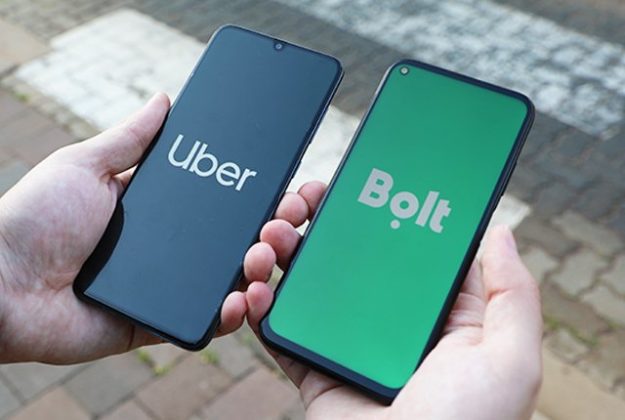Drivers in Cape Town, South Africa, who use Uber and Bolt, have stopped working and gone on strike to show how unhappy they are with the country’s ride-hailing system. The unhappy drivers decided to go on strike mainly because of low pay and a long process for getting permission.
The drivers began their protest on Wednesday in the Western Cape. They took their protest to Bolt’s offices in the area and made their requests at each office they visited. On Thursday, they kept their strike going by taking their protest to the office of the city’s mayor, Geordin Hill-Lewis, where they gave him a list of their demands.
What Uber and Bolt Drivers Want

According to the memorandum, the ride-hailing drivers asked the mayor to temporarily stop impounding their cars and asked for a faster way to renew permits since there is a long line of people waiting.
In an interview with Fin 24, Siyabonga Hiabisa, Chair of the Uber Union, said that drivers want Uber to lower its fee from 25% to 10% and raise the rate per kilometre for drivers to R10.
What Is Uber Saying?
Mpho Sebelebele, who is in charge of communications for Uber in South Africa, told MyBroadBand during an interview that Uber will make efforts to address the problems.
“Because we take these problems seriously, we have and will continue to talk to drivers directly about them through our different engagement channels,” Sebelebele said.
He also said that the company is aware of its drivers’ situation and that Uber is working hard to make it easier for drivers to make money on its platform.
“We recognise drivers’ pressures, including the increasing cost of living.” However, it is important to understand that fares fluctuate as a normal part of any business based on various factors such as seasonality and the macroeconomic environment.
While considering the issue, Sebelebele said that they have seen that driver earnings in South Africa have recently started to improve, and they are always looking for new methods to assist drivers to enhance their earnings on the platform while also giving passengers additional cost-effective choices for getting about.
What Is Bolt Saying?
Takura Malaba, the country manager for Bolt in South Africa, said that the company would talk to the striking drivers to find out what they were upset about. Despite this, Malaba stressed that affordability is essential to Bolt’s business strategy.
Bolt respects every driver’s right to protest, and we appeal to drivers to do so legally, peacefully, and without impacting the rights of other drivers who choose to continue to operate and earn an income. Still, more people will choose to ride with Bolt if its affordable rates, which means that drivers have more opportunities to earn money, “Malaba said.
Even though the commission rates were raised to 20% this year, Malaba insisted that Bolt’s commission was one of the most favourable in the area. He also shot down claims that drivers were paying for special deals and discounts.
“Drivers that use Bolt keep between 6% and 10% more per trip than drivers using other platforms,” Malaba said.
He explained that “Bolt’s drivers never pay for discounts because Bolt covers the cost of all discounts.” Some confusion around this issue may have happened because a passenger on a discounted ride that pays cash pays the discounted amount to the driver. However, Bolt pays the difference—the cost of that discount—to drivers in the weekly pay-outs. “
Observations
The protesting drivers have given the two ride-hailing companies 14 days to do what they want.
Resistance to Uber and Bolt’s business models is nothing new in Africa. This year, Tanzania’s Land Transport Regulatory Authority (LATRA) required ride-hailing services to charge a 15% fee. As a result of this ruling, Uber left the nation, and Bol is now serving exclusively corporate customers. Also, a few months ago, Uber raised the minimum fare for rides in Ghana.
